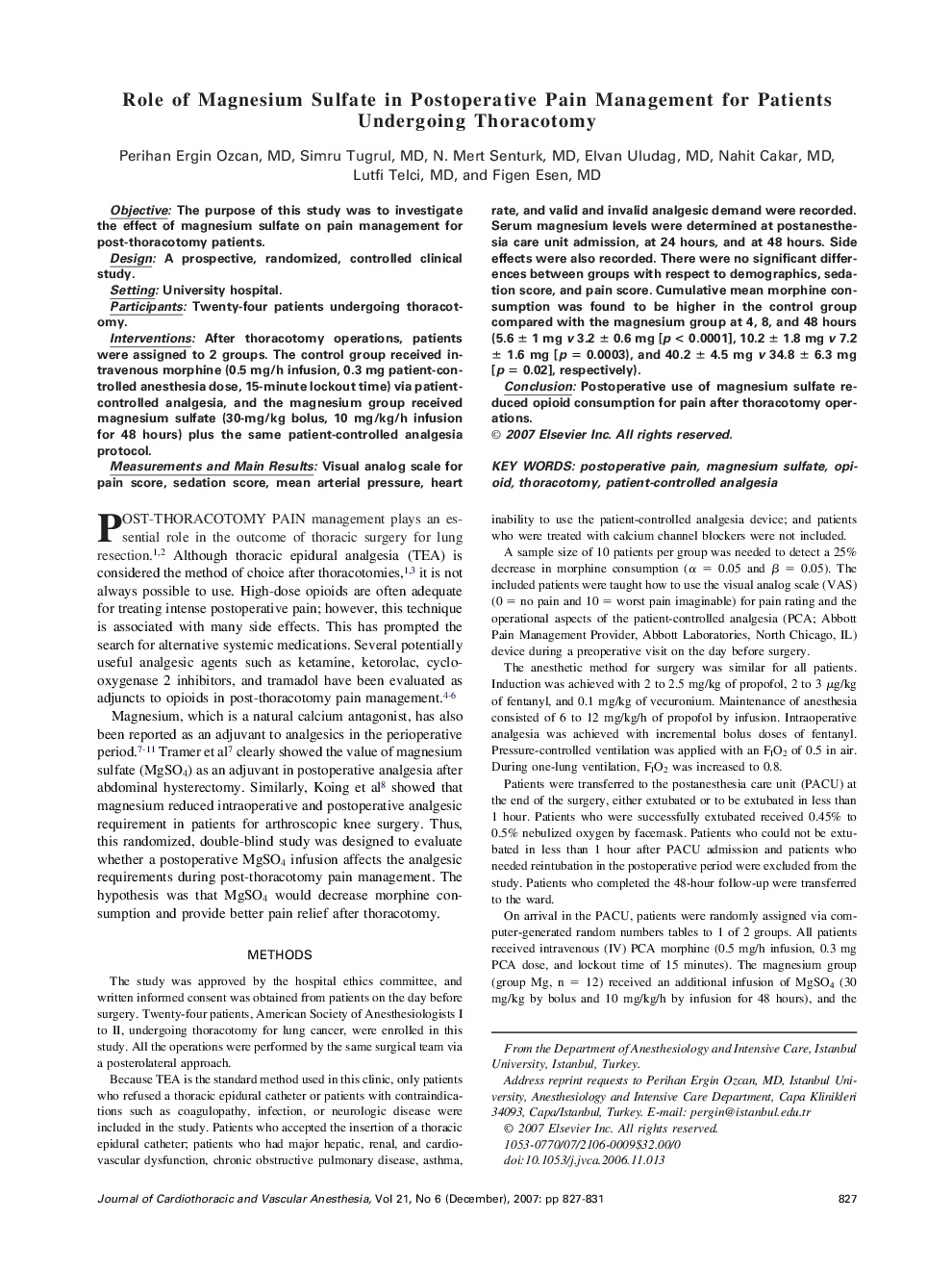| Article ID | Journal | Published Year | Pages | File Type |
|---|---|---|---|---|
| 2761609 | Journal of Cardiothoracic and Vascular Anesthesia | 2007 | 5 Pages |
Objective: The purpose of this study was to investigate the effect of magnesium sulfate on pain management for post-thoracotomy patients.Design: A prospective, randomized, controlled clinical study.Setting: University hospital.Participants: Twenty-four patients undergoing thoracotomy.Interventions: After thoracotomy operations, patients were assigned to 2 groups. The control group received intravenous morphine (0.5 mg/h infusion, 0.3 mg patient-controlled anesthesia dose, 15-minute lockout time) via patient-controlled analgesia, and the magnesium group received magnesium sulfate (30-mg/kg bolus, 10 mg/kg/h infusion for 48 hours) plus the same patient-controlled analgesia protocol.Measurements and Main Results: Visual analog scale for pain score, sedation score, mean arterial pressure, heart rate, and valid and invalid analgesic demand were recorded. Serum magnesium levels were determined at postanesthesia care unit admission, at 24 hours, and at 48 hours. Side effects were also recorded. There were no significant differences between groups with respect to demographics, sedation score, and pain score. Cumulative mean morphine consumption was found to be higher in the control group compared with the magnesium group at 4, 8, and 48 hours (5.6 ± 1 mg v 3.2 ± 0.6 mg [p < 0.0001], 10.2 ± 1.8 mg v 7.2 ± 1.6 mg [p = 0.0003), and 40.2 ± 4.5 mg v 34.8 ± 6.3 mg [p = 0.02], respectively).Conclusion: Postoperative use of magnesium sulfate reduced opioid consumption for pain after thoracotomy operations.
